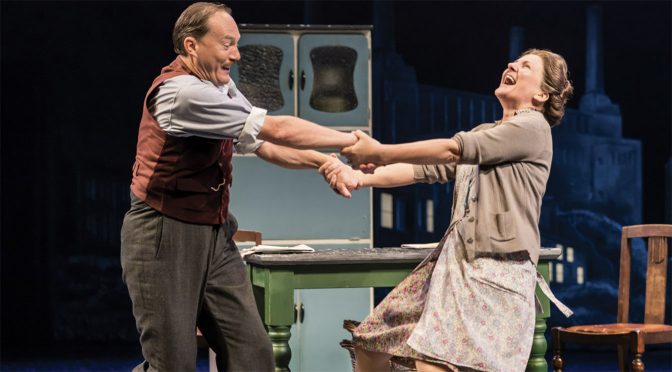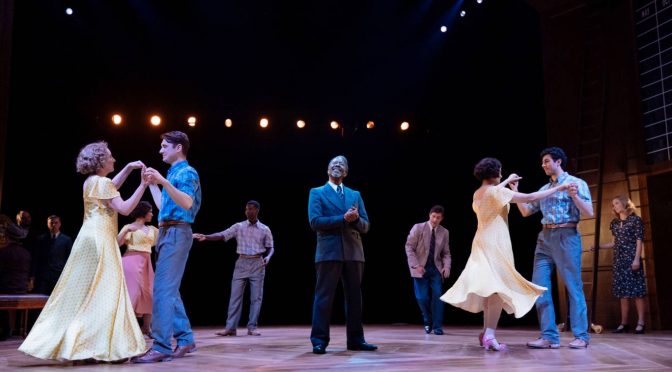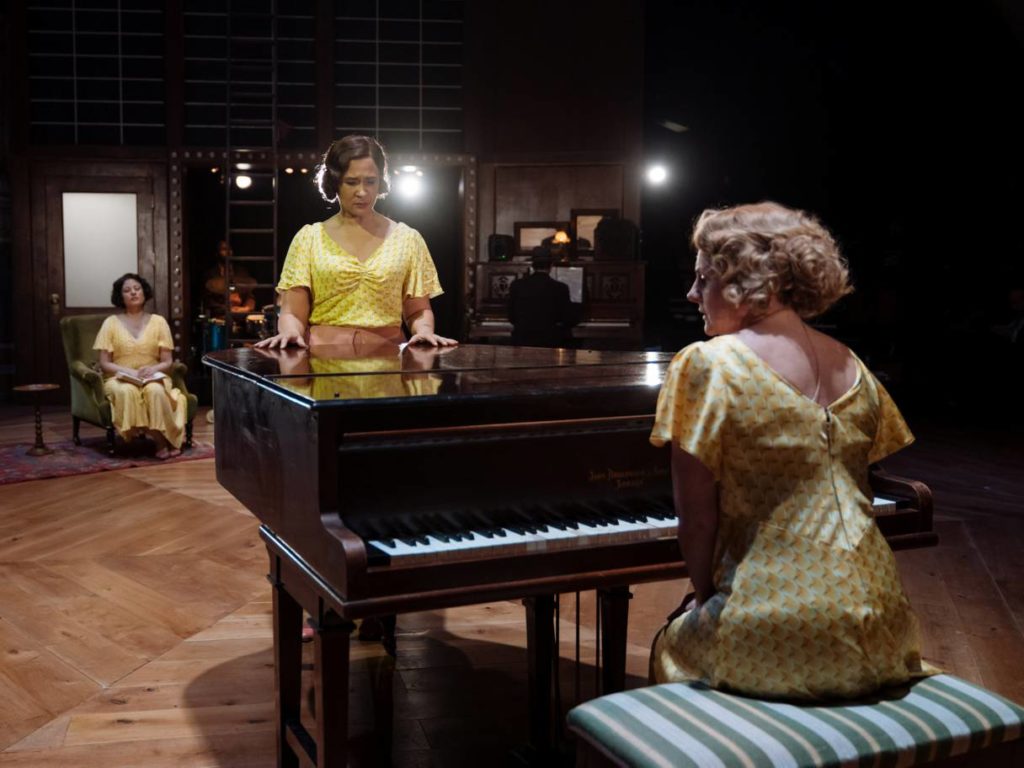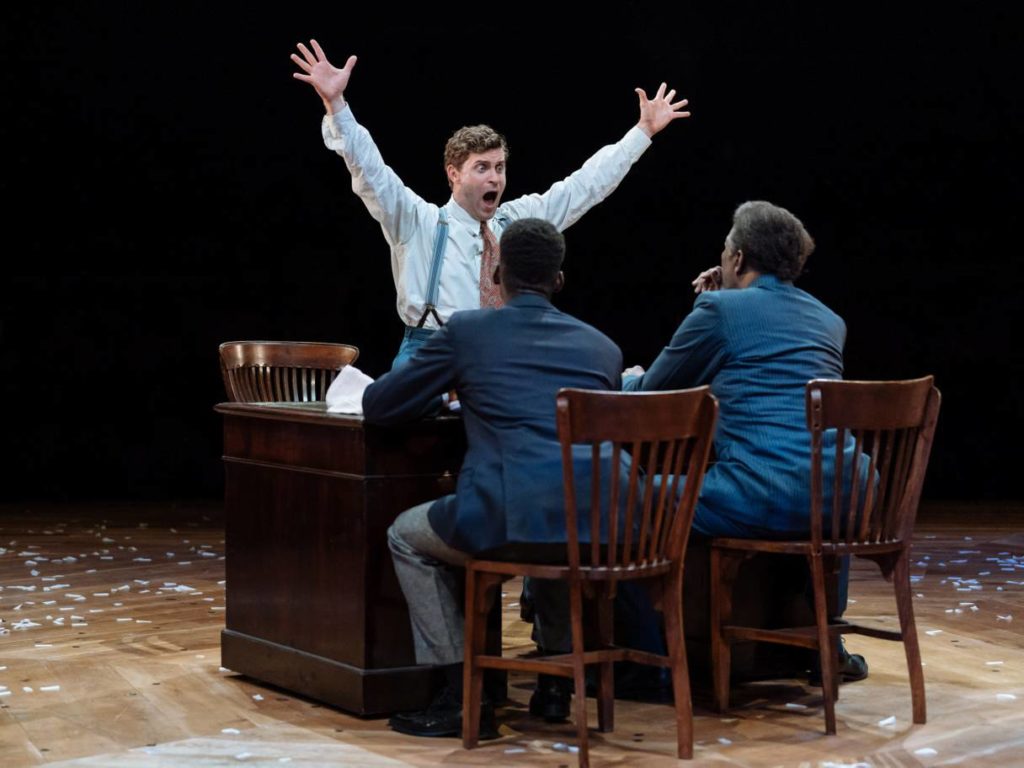The story of a widowed char lady who saves up to buy a Christian Dior dress doesn’t sound like a winner. But I’m shocked that this show, which started at Sheffield Theatres in 2016 and is generously presented online by the Chichester Festival Theatre, wasn’t a big hit. High-quality, old-fashioned and unashamedly feelgood, Richard Taylor’s score and lyrics, with a book by Rachel Wagstaff based on Paul Gallico’s novel, is musical theatre magic.
There are risks here. The central character is naïve as well as ridiculously self-sacrificing. Her motivation, the dream behind her triumph over adversity, really shouldn’t convince. And the show is predictable – we all know where Mrs Harris will take a trip (cue dodgy accents to join already plentifully dropped consonants). But if you’re going to manipulate, emotional restraint isn’t called for, and director Daniel Evans shows he knows that. The proof is in the puddin’ – I was close to tears for most of the second act!
Much of the success is down to the mammoth title role, played by Clare Burt. At first gravelly, her voice gets stronger as the show progresses – along with a score that reflects dreams and imagination with style. The trials she faces in saving for her dress create remarkable investment with the audience. When winning the pools isn’t enough (an excellent sequence) hard work is the key, and admiration for the character, and Burt’s assured performance, are secured.
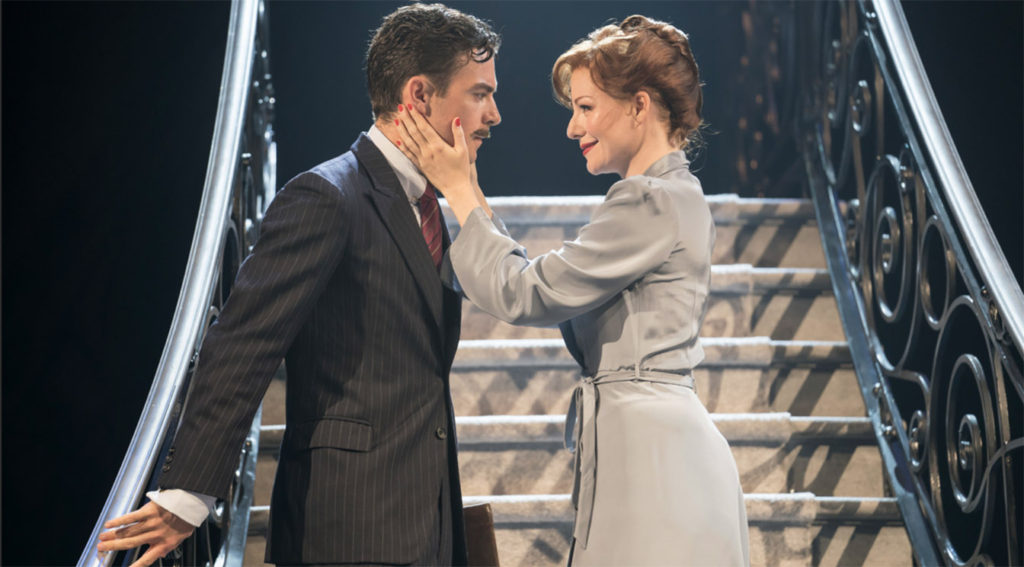
Mrs Harris goes around inspiring all, like a mix of Mary Poppins and Dolly Gallagher Levi. It makes for plenty of subsidiary characters, admittedly of varying success. It’s great to see some older roles, like Mrs Harris herself, but the younger parts are better and create a rush of romance that adds further escapism. Helping the French in their amours indicates a nice sense of humour underlying the show and provides great numbers for Laura Pitt-Pulford and Louis Maskell. There’s a touch here of She Loves Me – it’s a chocolate cake rather than ice cream – and that’s never a bad thing.
That there’s plenty of love for Mrs Harris is only fair. Mark Meadows’ roles – as her dead husband and then a Marquis who sees her as a fellow spirit – anchor the show. Like the gown she so covets, everything in Flowers for Mrs Harris is “made to make you feel”. Taylor doesn’t let up, and even a couple of twists at the end of the show ram home humour and heart. Nor does the finale disappoint, with each bouquet for Mrs Harris bringing a smile and a sob.
Available until 8 May 2020
To support visit www.cft.org.u
Photos by Johan Persson

